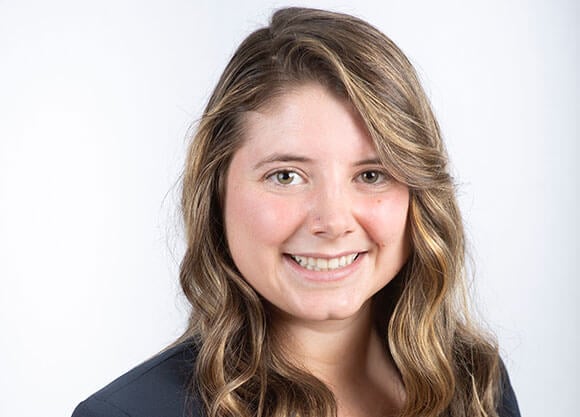
Medical student works to eliminate language barriers to better communicate, treat her future patients
June 15, 2023

June 15, 2023

Having studied Spanish in high school, even taking AP Spanish her senior year, Donofrio considered adding the language as a minor. When complications arose and prevented her from doing so, she joined Quinnipiac’s Medical Spanish Interest Group.
The organization gave her the opportunity to practice her medical Spanish and ensure that she was practicing the terms that will likely be used in her future career.
“By learning Spanish and eliminating this language barrier, it becomes easier to not only provide care for the patients, but build trust as well,” Donofrio explained.
She looked for the opportunity to further her Spanish education outside just one organization. Through Quinnipiac, she discovered the ability to gain a Spanish language for medical professionals certificate.
“Although I enjoy our interest group, it’s more for practicing than learning. As part of our scholarly reflection and concentration course, we are required to choose electives, so I decided on medical Spanish to expand my knowledge on the topic,” Donofrio said.
In order to achieve her medical Spanish certification, she took a course with Professor Marilin Sarria. Having the opportunity to work with other students instead of individually gave her a more practical use of her vocabulary, instead of just textbooks and written quizzes.
According to Donofrio, “I could learn from my classmates in this course. If I was struggling with certain words or concepts, they could assist me while we worked through the assignment.”
Her professor also made an important impact on a course that isn’t like many others.
Sarria was available through email and Zoom, took regular feedback from her students to adjust how she was teaching and how students felt about the workload, and was willing to implement changes throughout the semester to accommodate her students. That care created the perfect environment for learning a crucial skillset.
“Being bilingual is a definite benefit for any future physician. A diverse group of patients will come through your office, and being able to communicate with all of them effectively is important to ensure they understand what’s going on,” Donofrio said.
“A large percentage of local patient populations are Spanish speaking. If you don’t know the language, it becomes difficult to communicate with your patients. Good communication is key to successful treatment.”
Quinnipiac Today is your source for what's happening throughout #BobcatNation. Sign up for our weekly email newsletter to be among the first to know about news, events and members of our Bobcat family who are making a positive difference in our world.
Sign Up Now